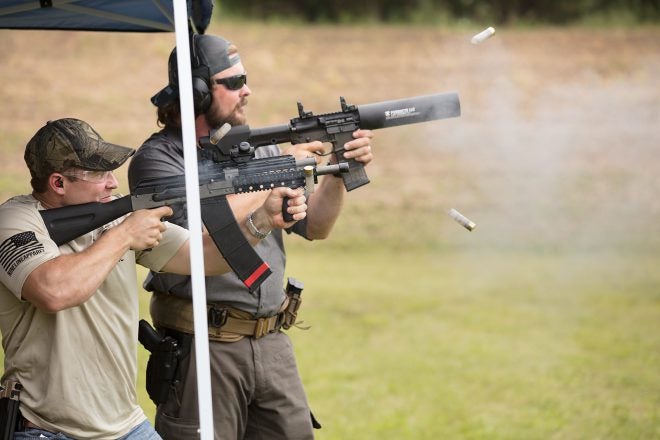- Send email to Oleg Volk.
-
Recent Posts
Recent Comments
- Boris on Another quiet neighbor
- Boris on The vintage and the modern
- John Dickson on Blowback or roller delayed? Cast your vote.
- dave in pa. on A machete kind of day
- Larry Arnold on A machete kind of day
Archives
- September 2025
- August 2025
- April 2025
- March 2025
- February 2025
- December 2024
- November 2024
- October 2024
- September 2024
- August 2024
- July 2024
- June 2024
- May 2024
- April 2024
- March 2024
- January 2024
- December 2023
- April 2023
- November 2022
- June 2022
- May 2022
- April 2022
- March 2022
- February 2022
- January 2022
- December 2021
- November 2021
- October 2021
- June 2021
- January 2021
- December 2020
- October 2020
- September 2020
- August 2020
- July 2020
- May 2020
- April 2020
- March 2020
- February 2020
- January 2020
- December 2019
- November 2019
- October 2019
- September 2019
- August 2019
- May 2019
- April 2019
- March 2019
- February 2019
- January 2019
- December 2018
- November 2018
- October 2018
- September 2018
- August 2018
- July 2018
- June 2018
- May 2018
- April 2018
- March 2018
- February 2018
- January 2018
- December 2017
- November 2017
- October 2017
- September 2017
- August 2017
- July 2017
- June 2017
- May 2017
- April 2017
- March 2017
- February 2017
- January 2017
- December 2016
- November 2016
- October 2016
- September 2016
- August 2016
- July 2016
- June 2016
- May 2016
- April 2016
- March 2016
- February 2016
- January 2016
- December 2015
- November 2015
- October 2015
- September 2015
- August 2015
- July 2015
- June 2015
- May 2015
- April 2015
- March 2015
- February 2015
- January 2015
- December 2014
- November 2014
- October 2014
- September 2014
- August 2014
- July 2014
- June 2014
- May 2014
- April 2014
- March 2014
- February 2014
- January 2014
- December 2013
- November 2013
- October 2013
- September 2013
- August 2013
- July 2013
- June 2013
- May 2013
- April 2013
- March 2013
- February 2013
- January 2013
- December 2012
- November 2012
- October 2012
- September 2012
- August 2012
- July 2012
- June 2012
- May 2012
- April 2012
- March 2012
- February 2012
- January 2012
- December 2011
- November 2011
- October 2011
- September 2011
- August 2011
- July 2011
- June 2011
- May 2011
- April 2011
- March 2011
- February 2011
- January 2011
- 0
Categories
- advice requested
- ammunition
- armor
- art
- author
- beast
- book
- camera and lens
- cat
- civil rights
- computing
- craft
- dangerous
- economics
- flowers
- food
- green
- holster
- hoster
- humor
- hunting
- interesting people
- knife
- light/laser
- nature
- nude
- pet
- pink
- pistol
- portrait
- prey
- red
- rifle
- rkba
- self-defense
- shotgun
- sound suppressor
- tools
- training
- travel
- Uncategorized
- video
- weapon
- wordpress
Meta
What can the Brits do?
With proper ammunition, even an over an under shotgun can be a formidable weapon in a pinch, but the issue with the UK is that what weapons are owned may not be carried. That reminds me unpleasantly of New York and similar enlightened places. No wonder that places like that stay vulnerable to attacks, while Switzerland and the better armed American metro areas have had few successful terrorist events. Perpetrators usually lasted just long enough for the locals to figure out that their actions weren not accidents.
New edits of old portraits, 2009
Photos freeze time…the person in them grows, changes for better or for worse, but the time slice remains distilled and preserved.
Posted in portrait
Comments Off on New edits of old portraits, 2009
A girl and her dog
You’ve seen Natasha and Humphrey kissing before, now more about them.
Humphrey is a pretty cool dog.
Natasha is pretty cool herself, and incredibly fit…
Fedora and a smile
Just did more photos of Karissa. She’s easy to work with, always reliable, and pretty good with small arms. Let me know if you need a model around Nashville or Cookeville, I will make the connection.
Restraining order enforcement
“We can’t be simultaneous bodyguards to all of our friends. Even if we could, that would set up an unhealthy dependency on you. Teaching your friends to defend themselves makes them safer and more independent.”
A right and a responsibility.
Ukrainian translation of my poster about self-defense.
28th anniversary
My parents and I arrived to American May 23, 1989. Glad we moved! It’s been an interesting time so far.
Posted in author
5 Comments
Nursing

This image should show up as the thumbnail on the puritan social media sites like Facebook. Click on the link to see my photo. I don’t feel like losing access to FB until a more useful general social network develops.
Another custom rifle by Fighting Sheepdog
Watching Jen make op cans dance at 50 yards standing is always fun. And it’s a lot easier to get correctly posed photos if the model isn’t just pretending competency.
Maximum Pink
Zastava CZ99 rifle, a .22 rimfire bolt action advertised as a youth model. In reality, it’s more like a compact but hefty carbine for adult shooters. Pretty nice build quality. A full review is in the works.
























